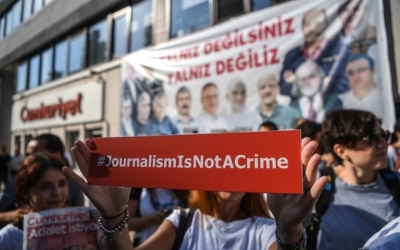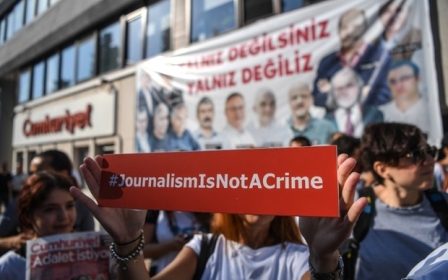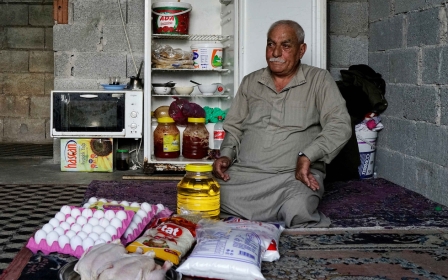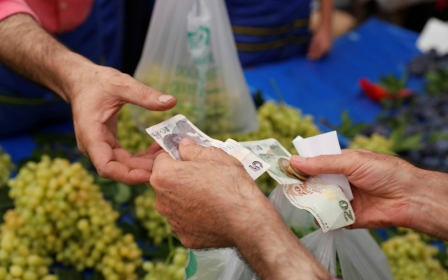Bloomberg reporters in Turkey court over currency crisis article
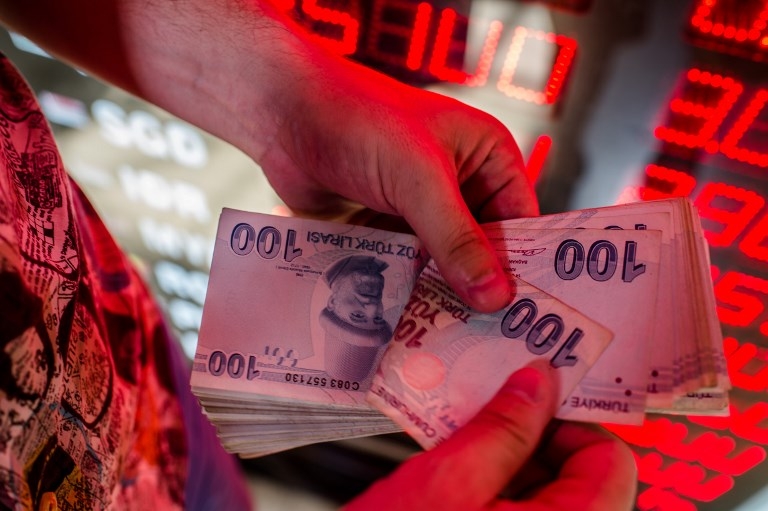
Two Bloomberg reporters went on trial in a Turkish court on Friday, facing up to five years in prison over claims that they tried to sabotage the economy with an article about last year's currency crisis.
The two journalists were among dozens of defendants, including some who had written jokes about the currency crisis on Twitter.
Kerim Karakaya and Fercan Yalinkilic are accused of trying to undermine Turkey’s economic stability, charges that carry a jail sentence of between two and five years, according to Reuters. The other 36 defendants are accused of social media comments on the story, or comments deemed critical of Turkey's economy.
The Bloomberg article was published in August 2018 on a dramatic day when the lira lost around a fifth of its value against the dollar.
The report said Turkey's banking regulator agency, known as the BDDK, would hold an emergency meeting.
New MEE newsletter: Jerusalem Dispatch
Sign up to get the latest insights and analysis on Israel-Palestine, alongside Turkey Unpacked and other MEE newsletters
"For the BDDK to call a meeting was normal... I hardly understand why our story has received such a reaction," Karakaya told the court.
"As journalists we told our readers what happened that day. I've been a journalist for 15 years, I've seen many crisis periods. This is the first time I am in front of a court."
Bloomberg editor-in-chief John Micklethwait said the agency continued to fully support its two journalists.
"They've been indicted for accurately and objectively reporting on highly newsworthy events," he said.
"We are committed to them and to press freedom and hope that the judiciary will do right by acquitting them."
Others in court appeared shocked to be on trial over throwaway comments on Twitter, the AFP news agency reported.
"If me and the others in this room can ruin the economy with tweets, then we are all toast," said one of the defendants, Halit Tokkus.
A 22-year-old student, Bilalcan Sagir, was also in court over a tweet that read: "I doubt the brain of anyone who says there is no crisis. Come to your senses."
He told the court: "I am a student. I posted tweets, but I don't know how I can influence the capital markets."
After opening statements, the court said a new hearing would be held on 17 January.
'Anti-government language'
Conspiracy theories are widely believed in Turkey, and President Recep Tayyip Erdogan has often stoked suspicions of the foreign media, saying they are trying to undermine the country.
Erol Onderoglu, of Reporters Without Borders (RSF), who was attending the trial, said it "illustrates a new and worrying tendency that targets the coverage of economic affairs".
Onderoglu highlighted other recent cases, including a local journalist, Cengiz Erdinc, who was convicted of "damaging the reputation" of public bank Ziraat.
In July, the government-linked SETA think-tank in Istanbul published a report listing certain Turkish journalists working for foreign media, accusing them of using "anti-government language".
RSF described the report as an "intimidation attempt" that "brings the harassment of foreign media correspondents to a new level".
Middle East Eye delivers independent and unrivalled coverage and analysis of the Middle East, North Africa and beyond. To learn more about republishing this content and the associated fees, please fill out this form. More about MEE can be found here.


